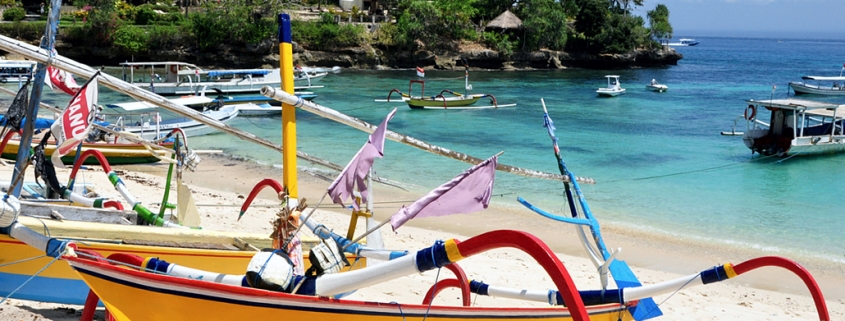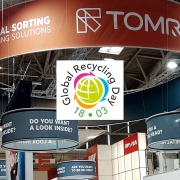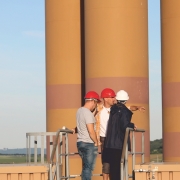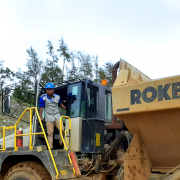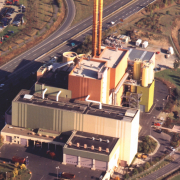Potential Business Options through Recycling
Can an emerging asset class stem Indonesia’s tide of plastic waste?
Ever since pictures and videos of a polluted ocean at Nusa Lembongan in Bali went viral across social media, Indonesia’s negative role as the world’s second largest ocean polluter has been in the global spotlight. In 2017 the government pledged as much as one billion US-Dollar a year to dramatically reduce the amount of plastic and other waste products polluting its waters. The ambitious President Regulation No. 97/2017 – A Roadmap Towards 2025 – calls for a 30 percent waste reduction and the processing and managing of at least 70 percent of the country’s waste not to end up in landfills.
Numbers vary, but currently Jakarta leads with a recycling rate of meager 7,5 percent, other areas average at 2-3 percent. A whopping 80 percent of waste in Indonesia’s ocean area comes from 87 cities in Indonesia, mostly from Java island. But it is not easy to be sustainable in one of the world’s largest emerging economies.
Indonesia’s iconic beverage producer, SOSRO relied for many years on its own glass bottle deposit system but was forced by other market players to move towards plastic or PET. Soegiharto Sosrodjojo, the President Director of the group, explains: “We are not proud about selling all the PET volume for our beverages. We want to tell the market that glass bottles or cans are actually better than plastic in many ways, for safety, taste, preservation or the environment, but in terms of convenience, it is difficult to beat PET. But the question is, can you be responsible in throwing it away?” This is indeed the question we all have to ask ourselves and where public awareness will need to grow considerably. Soegiharto wants to go further: “We are ready to speak about environment, but we cannot do it fully on our own. This sort of movement has to be supported by big organizations, big players as well as the Government having to be 100 percent behind this.”
The Indonesian government seems to realize this and has become the first country to sign up to The Global Plastic Action Partnership (GPAP), which is hosted by The World Economic Forum, aiming at fast-tracking circular economy solutions in coastal countries battling plastic waste.
What everyone agrees on is that major investments in the sector are imperative. The Indonesian Government has commenced the development of Waste-to-Energy (WTE) power plants in eight big cities, which is regarded as national strategic projects. WTE is seen as a catch-all to get rid of waste and generate “green” electricity at the same time. The progress of the projects has been dampened by the 2018 ruling of Indonesia’s Supreme Court that incineration of waste is against the law because it produces hazardous pollutants. This can indeed be the case if a lack of sorting leads to a “wet” waste mix. The trash in Indonesia is to a large extent comprised of organic and other non-flammable materials which make it difficult for incineration plants to reach the high temperatures necessary to produce electricity and avoid toxic emissions and ash by-products. WTE works as a short-term solution to manage the waste crisis, but in long-term Indonesia will have to establish effective waste sorting systems to run the WTE plants properly.
There has indeed been a modest increase in expanded recycling processing capacity in the region since China essentially closed its market for the world’s plastic waste, a policy named “National Sword”. Even though Indonesia is considered mature in terms of investment in fin-tech and e-commerce, solid waste management remains off the radar for most venture capitalists and investors. ETAPAS President Director Reza Bath, who is launching an app-based recycling trading platform coupled with environmental actions and awareness programs, acknowledges that it has been difficult getting to where he is today. “Investors are quick to put money in the tenth e-commerce company or the next peer to peer lending site but haven’t yet put their head around waste management, let alone a company that is not a replication of a Western or Chinese solution. Venture capitalists like to call themselves innovators, but when you have a truly innovative idea that doesn’t exist in the market, you meet blank stares,” he explains. “Till date we’ve had to rely on angel investors even though we have a database of several thousand traders and orders of more than a million US-Dollar. We hope that we can attract foreign investors with greater appetite once we launch the App and have the payment gateway ready to execute trades,” he concludes.
It might indeed take some time before investors truly embrace the topic of waste management, mainly because the sector is not yet able to offer evidence-based track records. We still need to see a solid pipeline of investable opportunities necessary to build confidence and unlock large-scale capital. Yet, when considering the impact of plastic in economic terms, it is estimated that plastic does 13 billion US-Dollar in damage to marine ecosystems annually. Plastic is being produced mainly for a first-use cycle, where 95 percent is lost to the economy thereafter (worth 80 to 120 billion US-Dollar annually). This is a massive problem, but also a major opportunity.
__________________
Rolf Hajek is senior director at Dreyer-Media, a UAE based agency that produces country investment reports worldwide which are published with prominent media outlets from the US and mainland China. Through its contacts, the company further specializes in investment facilitation and consults on international business expansion projects.
__________________
Author: Rolf Hajek, Photo: desfosse / Pixabay
(GR 22019, Page 12)

